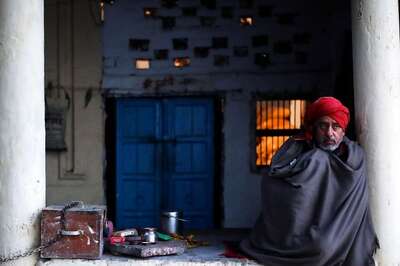
views
The Madras High Court recently directed the Tamil Nadu government and police authorities to consider the representation for accelerated promotion to a Grade I Constable who played a crucial role in gathering intelligence on the infamous forest brigand Veerappan.
The bench of Justice K Kumaresh Babu noted that constable R Sumathi and her husband had even shifted their residence to a village where Muthulakshmi, Veerapan’s wife was residing, to collect information regarding his movements.
The constable, dissatisfied with the rejection of her requests for accelerated promotion by the government, approached the court to contest this decision. She alleged a perceived disparity, contending that she was denied promotion on the grounds that her actions were deemed part of her regular duties. Drawing attention to a Sub Inspector in the Special Branch of CID, who, despite not being directly involved in the task force, received accelerated promotion for collecting information on Veerappan, the constable asserted that such differentiation was unjust.
The single judge bench held that in comparison to the aforementioned Sub Inspector, R Sumathi had undertaken a more significant risk and fulfilled her duties more commendably.
The bench stressed that dismissing her claim based on the argument that her tasks were routine and should be carried out by a Q Branch would be arbitrary, discriminatory, and a violation of the principles outlined in Article 14 of the Constitution.
As per the bench’s observation, “Her claim cannot be rejected on the basis that it is her regular task that should be performed by a Q Branch. If such a decision is taken, the same would be arbitrary and discriminatory and violation of principles of Article 14 of the Constitution”.
The court further observed that in accordance with a Government Order dated October 7, 2013, a policy decision was made by the government to acknowledge and commend the acts of extraordinary bravery and valour exhibited by police personnel during their engagements with hard core criminals, terrorists, and other anti-social elements. In furtherance of this policy, a committee was established to assess and recognise such commendable actions.
In view of the same, the court directed the constable to make a suitable representation to the said committee. “The committee shall consider the case of the petitioner within a period of six weeks and thereafter pass appropriate orders within the said period,” the court ordered.


















Comments
0 comment